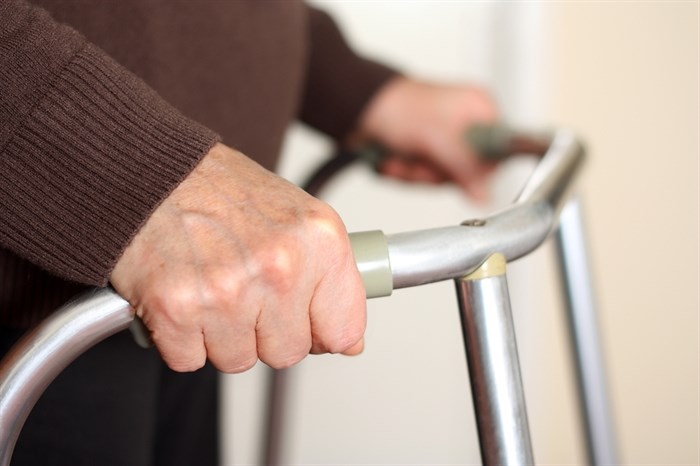
Image Credit: Shutterstock
January 14, 2024 - 6:00 PM
A seniors advocate in Kamloops has seen a significant rise in loneliness and isolation in the past few years, a dangerous health problem that is growing across the country.
“We’ve seen a big increase in seniors experiencing isolation since COVID and it’s something that hasn’t bounced back yet,” Kamloops Centre for Seniors Information executive director Brandi Allen told iNFOnews.ca.
“Prior to COVID we’d get thousands of seniors a month participating in events, socials and dances. Those numbers are down by 75 percent since the pandemic started."
It’s a concerning issue the non-profit is well aware of and is working to improve.
“We talk about it every day from a program service perspective on how to address it and how do we engage with seniors,” Allen said. “We’ve seen an increase in people phoning in for assistance, they’re still reaching out, but I think it’s the physical connection that boosts mood.”
According to a report by the National Institute of Aging released last month, social isolation and loneliness in seniors is on the rise across the country, increasing health risks comparable to smoking and obesity. Lonely and isolated seniors are more risk for dementia, cardiovascular disease and premature mortality to name a few.
Solutions aren’t exactly clear, but contributing factors have been identified. Allen pointed to residual fears of COVID, online access limitations and societal shifts.
“The provincial health orders came out encouraging isolation and because of the fear of health risks at their advanced ages, (participation) never went back to the same level,” Allen said.
The majority of the clients the centre assists are ages 80 and up.
“A lot of them are not comfortable online or don’t have access to the internet so the virtual pieces we offer aren’t available for everyone, especially those living in rural areas,” she said.
Younger seniors maybe more open to using a phone or engaging online because they likely used more technology in their past careers or employment.
“The seniors online may be more physically isolated but they are potentially achieving social benefits,” she said. “People who are older would connect more in person.”
Another contributing factor to loneliness in seniors is a general shift in society, and that isolation and loneliness look different for every generation, which is something Allen considers when programming activities.
“For older generations age 75 and up culturally speaking it was so much more common to get together around the table to play cards. They’d spend time with their neighbours and used to dance all night long, it was a different society.
"The younger senior crowds didn’t socialize as much, there is almost a cultural shift.”
According to the national report, 41% of Canadians aged 50 years or older are at risk of social isolation and up to 58% of those have experienced loneliness.
The report pointed to health issues, retirement, loss of loved ones and not having close family nearby along with social and economic factors as some of the causes. Having family ties was a particularly positive influential factor.
Celeste Fummerton is a senior living in Kamloops.
She maintains a tight group of close friends who socialize regularly to keep mentally well, but sees lonely and socially isolated seniors “all the time.” When asked why some seniors choose not to participate in community functions, Fummerton said shying away from the world is a common thing for many people as they age.
READ MORE: Construction to start in the summer on redevelopment of Merritt rest stop
“I see senior women almost becoming agoraphobic, the more you don’t go out, the more anxiety you get just anticipating going out,” she said. “We don’t want to drive at night anymore, our vision is bad and it’s a bit of fear, we don’t want to be out of our homes at night anymore. There is a bit of insecurity about being a senior in the world, you don’t feel as safe.”
Fummerton knows seniors who socialize by playing cribbage online but “it isn’t the same as physical interaction.”
READ MORE: Cold snap expected to wield another devastating blow to Okanagan wine industry
The recommendation provided in the report is to develop a national strategy to combat social isolation and loneliness in seniors by investing into research, evaluating existing programs and considering new, better practices.
And there are some things the general public can do to help.
“The answer is to embrace some of the cultural pieces the older generations were good at, where we go make connections within our little neighbourhoods, share food, play games and communicate regularly so we know who is who and how each person is doing,” Allen said. “If someone doesn’t show up for cards, everyone knows to check in on them.”
The Centre for Seniors Information in Kamloops is a not-for-profit seniors' organization whose mandate is to identify, create and maintain a broad range of programs and services that enhance the quality of life for seniors and their families.
To contact a reporter for this story, email Shannon Ainslie or call 250-819-6089 or email the editor. You can also submit photos, videos or news tips to the newsroom and be entered to win a monthly prize draw.
We welcome your comments and opinions on our stories but play nice. We won't censor or delete comments unless they contain off-topic statements or links, unnecessary vulgarity, false facts, spam or obviously fake profiles. If you have any concerns about what you see in comments, email the editor in the link above. SUBSCRIBE to our awesome newsletter here.
News from © iNFOnews, 2024